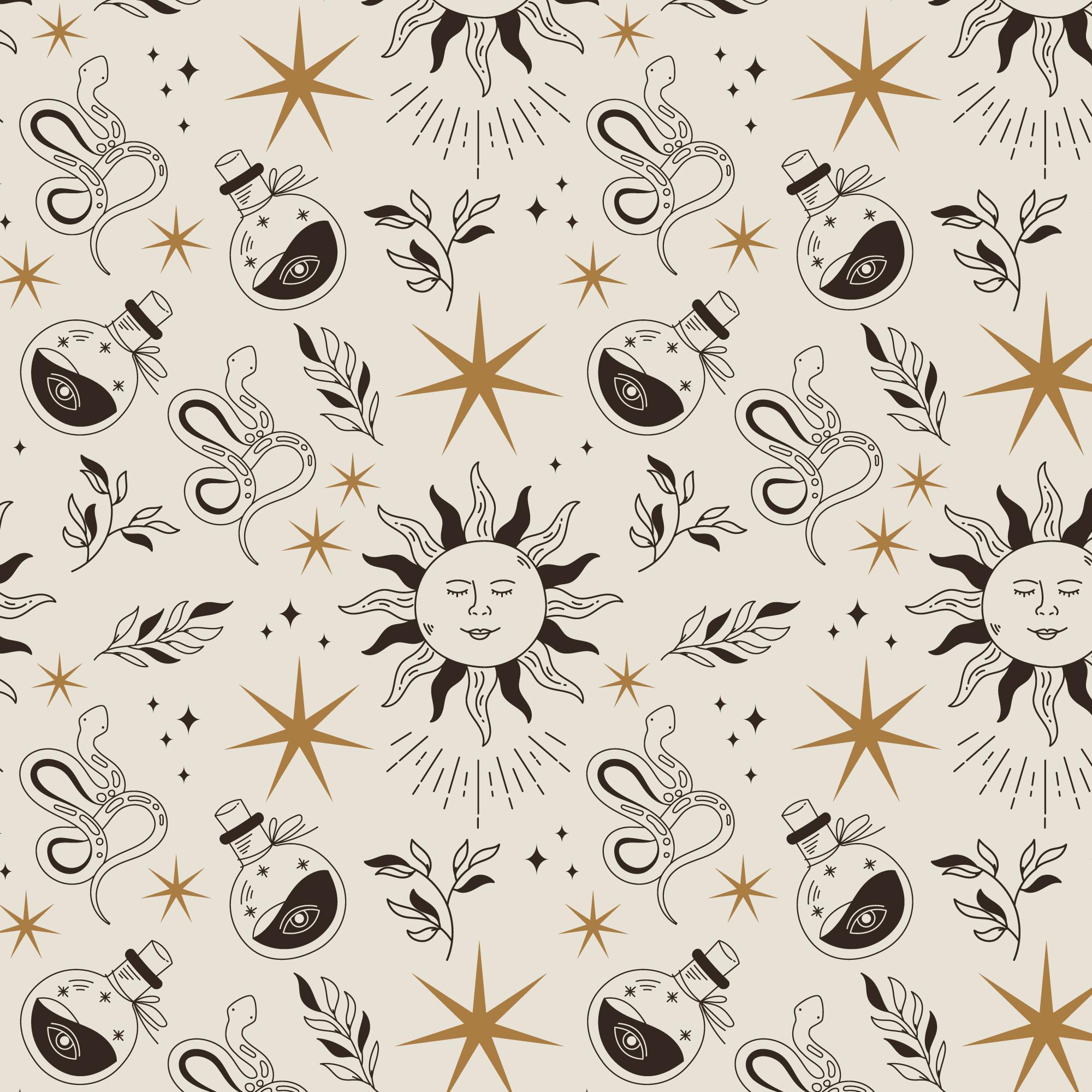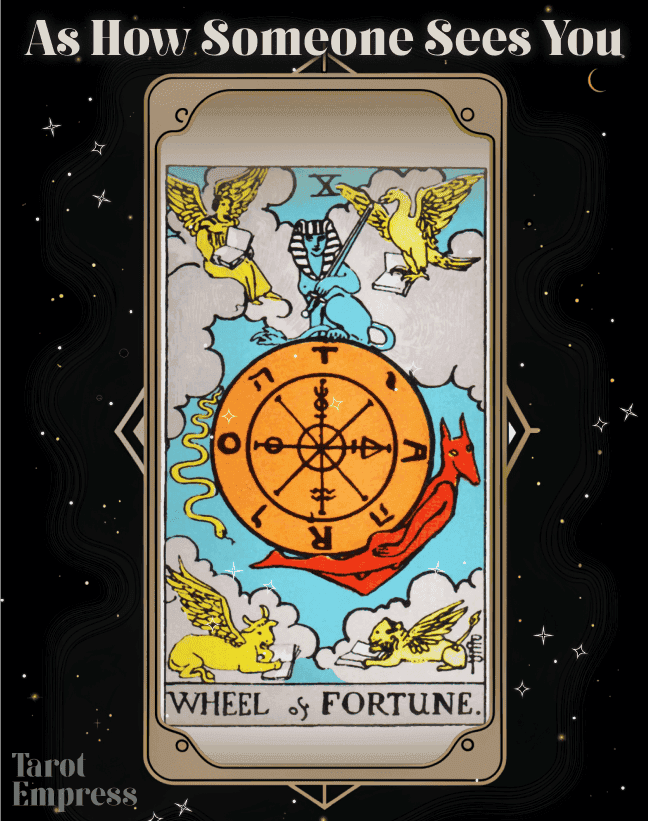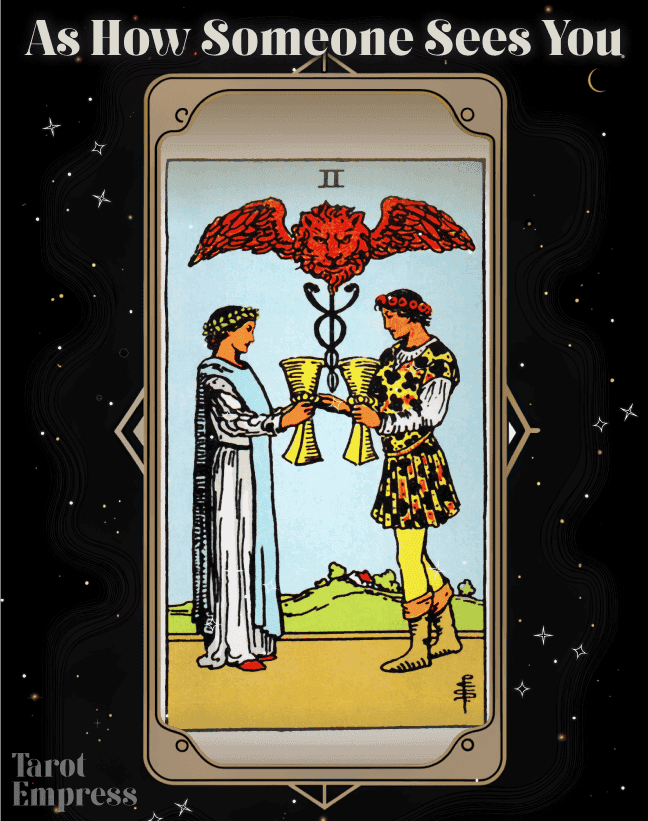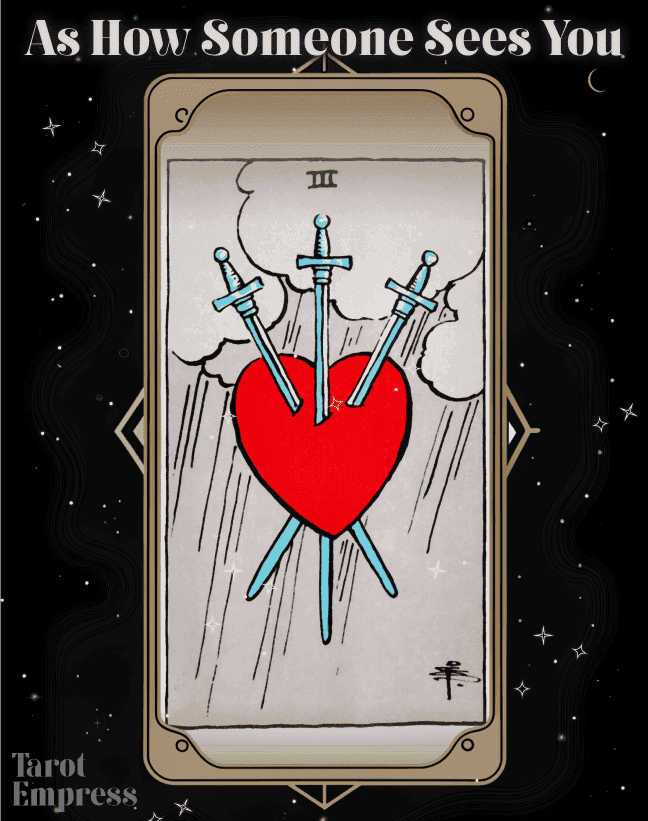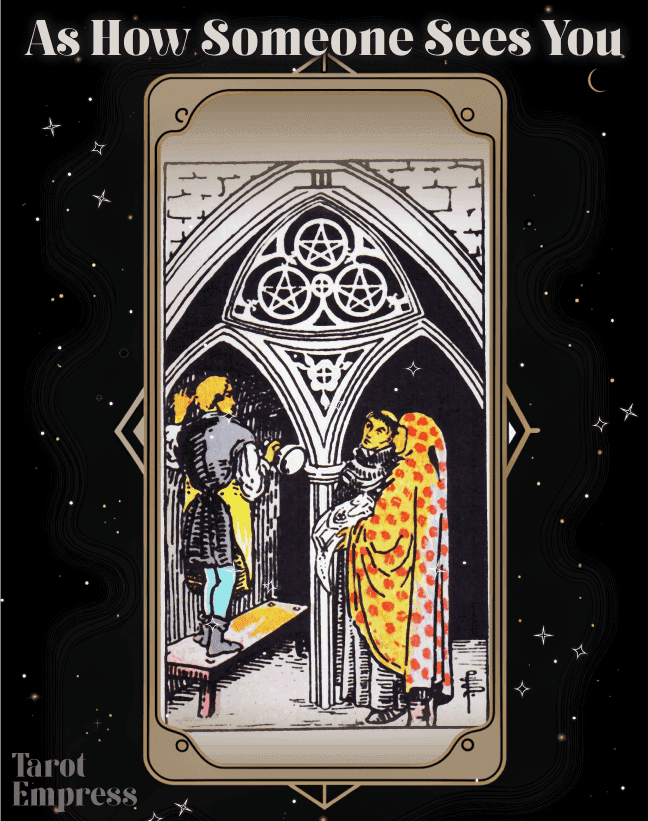Table of contents
- The Essence of Six of Cups: Intentions Rooted in Memory and Innocence
- Six of Cups Upright as Intentions: Heartfelt Generosity and Pure Motives
- Six of Cups Reversed as Intentions: Complexity and Nostalgia
- Six of Cups as Someone's Intentions: Upright vs Reversed
- Interpretation of 6 of Cups as Intentions
- FAQs
The Six of Cups is a card imbued with nostalgia, memories, and the simplicity of childhood joy. When this card surfaces in relation to intentions, it whispers of pure motives, heartfelt connections, and sometimes a longing for the past. Understanding the Six of Cups in this context opens a window into the influence of innocence and recollection on one's intentions. Exploring its upright and reversed positions reveals the different dimensions of these intentions, providing a glimpse into the multifaceted nature of human motives.
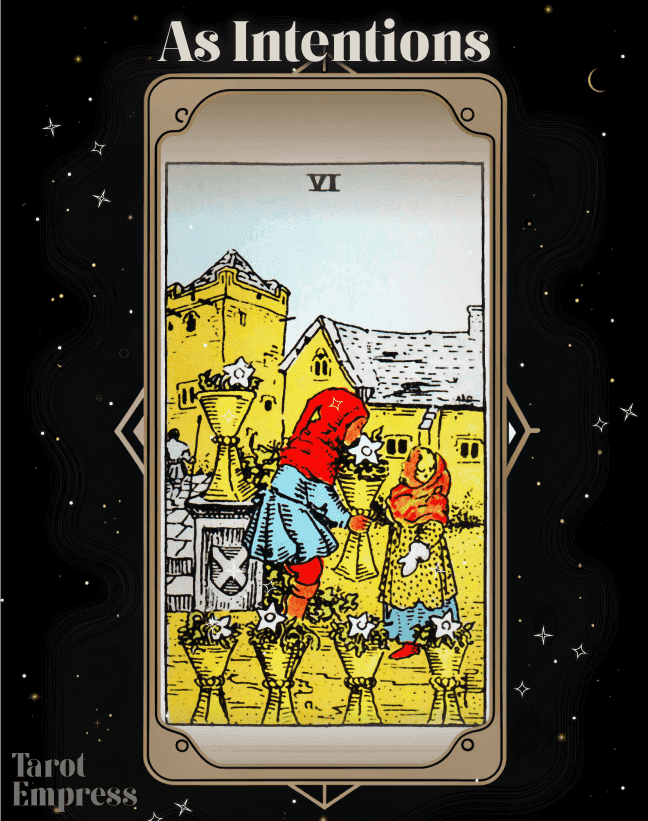
The Essence of Six of Cups: Intentions Rooted in Memory and Innocence
In the tarot deck, the Six of Cups is a symbol rich with sentimentality and youthfulness. The card typically features two children exchanging or playing with cups filled with flowers, symbolizing innocence, kindness, and the giving nature of a pure heart. As intentions, the Six of Cups encapsulates the idea of heartfelt generosity, pure motives, and a desire to recreate the joy of happier, simpler times.
When upright, the 6 of Cups often indicates intentions rooted in goodwill, generosity, and a desire to connect or reconnect with others on a profoundly emotional level. It signifies a pure heart, seeking to spread joy and kindness without hidden motives.
In reversal, however, the 6 of Cups can take on a more complex character. It may indicate nostalgic intentions that can hinder one's present, or perhaps an unhealthy attachment to past events or relationships. The reversed 6 of Cups asks us to examine if our intentions are truly forward-focused or if they are bogged down by an idealized past.
Six of Cups Upright as Intentions: Heartfelt Generosity and Pure Motives
When the Six of Cups appears upright in a reading, it signals intentions that are pure and sincere. Individuals influenced by this card's energy may act out of genuine kindness and a deep-seated desire to foster joy and mutual understanding. Here are some specific actions or behaviors one might exhibit under the influence of these intentions:
- Acts of Kindness: Often, this card indicates a person's intention to perform random acts of kindness without expecting anything in return.
- Reconnecting with the Past: There might be a strong desire to reconnect with friends or loved ones from the past, hoping to rekindle old relationships or resolve past misunderstandings in a positive light.
- Creating Joyful Experiences: One may want to create uplifting and joyful experiences for those they care about, perhaps reminiscent of happier, simpler times.
- Generosity of Spirit: Intentions might be marked by a wish to offer help, support, and resources to others in a heartfelt manner.
- Nurturing Loved Ones: There's often an intention to nurture and care for loved ones, emphasizing emotional connections and mutual support.
Heartfelt Acts in Action
To illustrate the impact of upright 6 of Cups intentions, let's consider a few specific examples that show how these pure motives might manifest in real-life situations:
- Rekindling Old Friendships: A person might reach out to an old friend with whom they've lost touch, hoping to renew their bond and share fond memories. This act is driven by the innocent desire to reconnect and gain mutual joy from the relationship.
- Family Gatherings: Intentions might include planning a family reunion or gathering, aiming to bring everyone together in a spirit of love and nostalgia. Organizing such events stems from a longing to relive positive family experiences and strengthen familial ties.
- Acts of Charity: Someone might be moved to contribute to charitable causes or volunteer their time to help others, with the sincere intention of spreading joy and improving lives without seeking personal gain.
- Meaningful Gifts: When giving gifts, the intention behind this card is to provide deep sentimental value, often tied to shared experiences or memories that evoke happiness and a sense of togetherness.
- Supporting Children: As the card frequently depicts children, intentions may include fostering the well-being and happiness of children, whether by mentoring, supporting education, or simply spending quality time to create joyful memories.
Six of Cups Reversed as Intentions: Complexity and Nostalgia
When the Six of Cups appears reversed, its intentions take on a more intricate and sometimes challenging nature. Instead of purely positive and forward-moving motives, there may be an element of selective nostalgia, clinging to the past, or unresolved emotional issues. Here are some actions or behaviors someone might display when influenced by these reversed intentions:
- Living in the Past: There might be an unhealthy fixation on past experiences, influencing their present actions and decisions.
- Unresolved Issues: Intentions could be colored by unresolved emotional issues or past grievances that haven't been adequately addressed.
- Idealizing the Past: Someone might have intentions rooted in an idealized version of the past, which can lead to disappointment or unrealistic expectations.
- Avoidance of the Present: This card reversed can signify a desire to escape present challenges by retreating into memories of better days.
- Emotional Hurdles: Intending to reconnect with the past may stem from a place of emotional stagnation or a struggle to move forward with current relationships or situations.
Hurdles and Nostalgia in Action
To comprehend how the reversed 6 of Cups might manifest in one's life, we can look at examples demonstrating these more complex and sometimes obstructive intentions:
- Clinging to Old Relationships: Someone might persist in trying to rekindle an old romantic relationship despite clear signs that both parties have changed and moved on. This reflects an idealized view of the past that hampers present growth.
- Avoiding New Opportunities: A person may repeatedly avoid new opportunities or experiences because they are hung up on "the good old days," thereby stalling personal or professional development.
- Sentimental Hoarding: Holding onto objects or mementos from the past to an extent where it prevents decluttering or moving forward can reveal an attachment to a bygone era, obstructing present well-being.
- Resentment Retention: Intentions might include addressing past grievances with a desire to resolve them, but often with a tendency to dwell on the hurt rather than truly moving on. This can lead to rehashing old arguments or feelings instead of achieving reconciliation.
- Seeking Past Validation: A person might continuously seek validation or approval from figures in their past – parents, old friends, or former mentors – rather than focusing on building self-assurance through present achievements.
Six of Cups as Someone's Intentions: Upright vs Reversed
Comparing the upright and reversed positions of the Six of Cups offers a nuanced view of how intentions can be positively constructive or nostalgically counterproductive depending on orientation. Here’s how these differences play out in various key areas:
In Personal Relationships:
Upright:
- Intentions include rekindling connections from the past, celebrating old bonds, and sharing joyful, nostalgic memories.
- There’s a focus on creating heartwarming experiences and building on the emotional foundations of past relationships to foster happiness and mutual support.
Reversed:
- Intentions might be marked by an inability to move past old grievances, focusing too much on what once was rather than what could be.
- There could be a tendency to dwell on past mistakes or idealize previous relationships, potentially causing issues in current dynamics.
In Business Ventures:
Upright:
- Intentions involve using positive past experiences to create a supportive, cooperative environment. There might be attempts to replicate successful, nostalgic elements in present business practices.
- Collaboration is often key, guided by a desire to cultivate a friendly and joyful work atmosphere.
Reversed:
- Intentions might involve reluctance to innovate due to nostalgia for old methods or the "good old days" in business.
- There could be a harmful attachment to traditional ways that no longer serve the company’s best interests, resulting in stagnation.
Personal Decisions:
Upright:
- Decisions are inspired by positive memories and the desire to recreate fulfilling experiences.
- The intention is to nurture personal growth while honoring past achievements and joys.
Reversed:
- There might be a tendency to make decisions based on an unrealistic view of the past, possibly leading to disappointment or missed opportunities.
- Intentions could be clouded by unresolved issues, making it hard to commit fully to new directions.
Interpretation of 6 of Cups as Intentions
The Six of Cups provides a profound insight into intentions influenced by past experiences and memories. In its upright form, it highlights the beauty and purity of heartfelt desires, emphasizing genuine kindness, emotional bonding, and the rekindling of joyous connections. The intentions here are straightforward, optimistic, and aim to spread happiness through nurturing and reconnecting with loved ones and cherished contexts.
However, the reversed Six of Cups brings forth a layer of complexity. Intentions might be tainted by unresolved issues, an unhealthy attachment to the past, or an escapist yearning for days gone by. These intentions are less about creating joy in the present and more about grappling with the ghost of times past, which can lead to stagnation or complications if not acknowledged and managed properly.
Both orientations of the Six of Cups serve as reminders to balance the influence of our past on our current intentions. While the upright position encourages us to embrace and celebrate the innocence and joy of past experiences, the reversed position asks us to confront and resolve past issues to move forward with clear, unburdened intentions.
Capturing Heartfelt Intentions: How the Past Shapes the Present
Understanding the Six of Cups in the context of intentions can be incredibly enlightening. It encourages us to reflect on how our past shapes our motives, either through the untainted joy and generosity symbolized by its upright position or the potentially obstructive nostalgia and unresolved issues highlighted in its reversed stance.
For those who seek deeper insight into the nuances of intentions through tarot readings, recognizing these aspects of the Six of Cups can provide invaluable guidance. Whether it's harnessing the positivity and connection rooted in past experiences or addressing and moving beyond the shadow of nostalgia, this card offers a pathway to understanding how our intentions are formed and can be realigned for greater harmony and fulfillment.
By applying these insights to your personal readings or seeking professional guidance, you'll be well-equipped to navigate the intricate dance between past influences and present intentions. Embrace the innocence, address the shadows, and let the wisdom of the Six of Cups guide you towards a future that's rich with joy, clarity, and heartfelt intentions.
FAQs
How does the Six of Cups reveal intentions rooted in nostalgia?
The Six of Cups often manifests intentions tied to nostalgia and fond memories. It indicates a yearning to revisit the past, to relive joyful moments, and to extend acts of kindness without ulterior motives. The card’s depiction, often featuring children sharing cups filled with flowers, signals a return to a simpler, purer time, highlighting intentions steeped in generosity, warmth, and emotional connections.
What insights do upright Six of Cups cards offer about someone’s motives?
Upright Six of Cups cards shed light on intentions driven by goodwill, innocence, and heartfelt generosity. They suggest actions rooted in a desire to bring happiness and foster emotional connections. People influenced by these intentions often seek to create joyful experiences, reconnect with loved ones, and offer support in a genuine and nurturing manner.
What do reversed Six of Cups cards disclose about hidden intentions?
Reversed Six of Cups cards uncover more complex and occasionally obstructive intentions. They may indicate an unhealthy fixation on the past, unresolved emotional issues, or idealized memories that hinder present actions. Such intentions often involve clinging to outdated relationships or methods and struggling to move forward due to emotional baggage or a longing for times gone by.
How does understanding the Six of Cups as intentions enhance the interpretation of motives?
Interpreting the Six of Cups as intentions provides a window into how past experiences shape current motives. It helps one understand the influence of nostalgia, childhood memories, and emotional connections on someone's behavior. By recognizing whether these intentions are positive and generous (upright) or complicated by unresolved past issues (reversed), one gains a clearer picture of the underlying motivations.
In what ways can Six of Cups as intentions impact decision-making?
When the Six of Cups guides intentions, it can deeply influence decision-making processes. Upright, it encourages decisions that foster emotional connections, rekindle joyful experiences, and build on positive past achievements. Conversely, in reverse, it can lead to decisions clouded by idealized memories or unresolved past hurts, potentially causing stagnation or unrealistic expectations.
How should one respond when Six of Cups appears frequently in intention-focused tarot readings?
If the Six of Cups appears frequently in readings centered on intentions, it's a call to examine how past experiences are influencing current motives. Reflect on whether you're acting out of a desire to recreate positive memories or if you're held back by unresolved issues from the past. Adjust your actions to ensure your intentions are nurturing and forward-moving, seeking professional guidance if needed to explore these layers more deeply.
